May 1st is International Workers’ Day (also known as May Day) which is a celebration of the international labour movement and left-wing movements. It commonly sees organized street demonstrations and marches by working people and their labour unions throughout most of the world. It is a national holiday in more than 80 countries.
———————————————————————————————————————————–
To honor the holiday, Berghahn is happy to present a selection of relevant titles that explore the importance, the struggles and history of labor throughout the world.
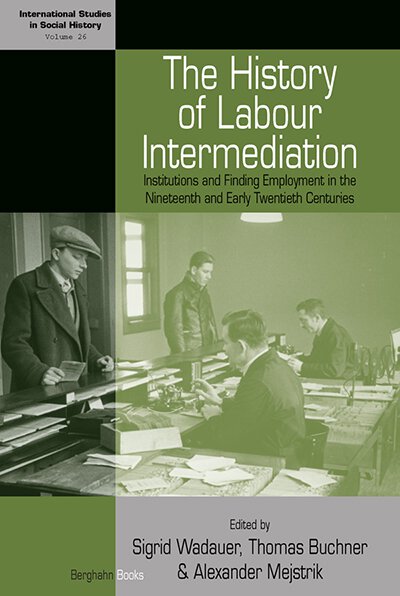 THE HISTORY OF LABOUR INTERMEDIATION
THE HISTORY OF LABOUR INTERMEDIATION
Institutions and Finding Employment in the Nineteenth and Early Twentieth Centuries
Edited by Sigrid Wadauer, Thomas Buchner, and Alexander Mejstrik
Searching for a job has been an everyday affair in both modern and past societies, and employment a concern for both individuals and institutions. The case studies in this volume investigate job search and placement practices in European countries, Australia, and India in the nineteenth and twentieth centuries. The contributors explore how looking for work becomes a means by which participants (individuals, placement agents, trade unions, municipalities, administrations, state authorities, and schools) articulated specific interests, perspectives, and agendas. Taking an exploratory approach, the chapters illustrate different approaches to the history of employment and job searching, ranging from organizational and regulatory histories to the analysis of practices and autobiographical accounts. In the process, they uncover the interrelations of search practices and attempts to arrange placement services.
 BLOOD AND FIRE
BLOOD AND FIRE
Toward a Global Anthropology of Labor
Edited by Sharryn Kasmir and August Carbonella
Based on long-term fieldwork, six vivid ethnographies from Colombia, India, Poland, Spain and the southern and northern U.S. address the dwindling importance of labor throughout the world. The contributors to this volume highlight the growing disconnect between labor struggles and the advancement of the greater common good, a phenomenon that has grown since the 1980s. The collection illustrates the defeat and unmaking of particular working classes, and it develops a comparative perspective on the uneven consequences of and reactions to this worldwide project. In Blood and Fire charts a course within global anthropology to address the widespread precariousness and the prevalence of insecure and informal labor in the twenty-first century.
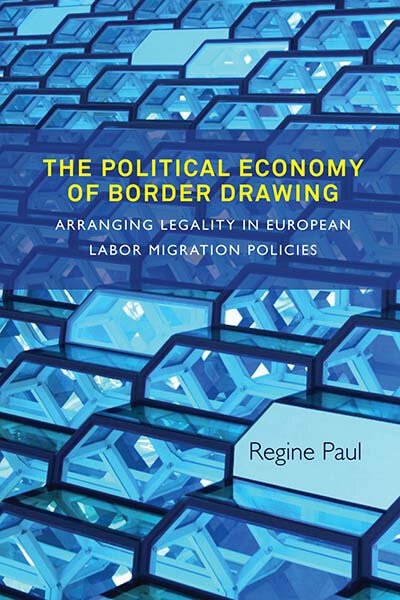 THE POLITICAL ECONOMY OF BORDER DRAWING
THE POLITICAL ECONOMY OF BORDER DRAWING
Arranging Legality in European Labor Migration Policies
Regine Paul
The conditions for non-EU migrant workers to gain legal entry to Britain, France, and Germany are at the same time similar and quite different. To explain this variation this book compares the fine-grained legal categories for migrant workers in each country, and examines the interaction of economic, social, and cultural rationales in determining migrant legality. Rather than investigating the failure of borders to keep unauthorized migrants out, the author highlights the different policies of each country as “border-drawing” actions. Policymakers draw lines between different migrant groups, and between migrants and citizens, through considerations of both their economic utility and skills, but also their places of origin and prospects for social integration. Overall, migrant worker legality is arranged against the backdrop of the specific vision each country has of itself in an economically competitive, globalized world with rapidly changing welfare and citizenship models.
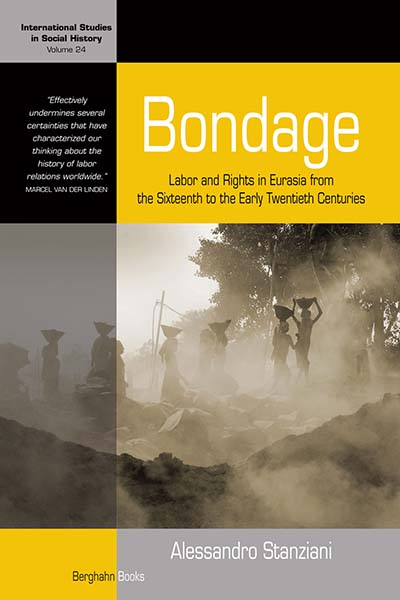 Forthcoming in Paperback!
Forthcoming in Paperback!
BONDAGE
Labor and Rights in Eurasia from the Sixteenth to the Early Twentieth Centuries
Alessandro Stanziani
For the first time, this book provides the global history of labor in Central Eurasia, Russia, Europe, and the Indian Ocean between the sixteenth and the twentieth centuries. It contests common views on free and unfree labor, and compares the latter to many Western countries where wage conditions resembled those of domestic servants. This gave rise to extreme forms of dependency in the colonies, not only under slavery, but also afterwards in form of indentured labor in the Indian Ocean and obligatory labor in Africa. Stanziani shows that unfree labor and forms of economic coercion were perfectly compatible with market development and capitalism, proven by the consistent economic growth that took place all over Eurasia between the seventeenth and the nineteenth centuries. This growth was labor intensive: commercial expansion, transformations in agriculture, and the first industrial revolution required more labor, not less. Finally, Stanziani demonstrates that this world did not collapse after the French Revolution or the British industrial revolution, as is commonly assumed, but instead between 1870 and 1914, with the second industrial revolution and the rise of the welfare state.
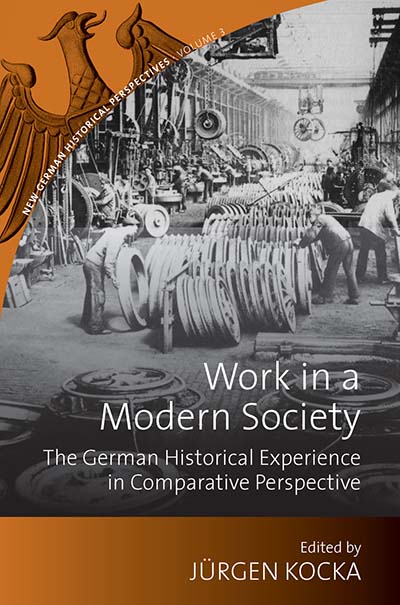 WORK IN A MODERN SOCIETY
WORK IN A MODERN SOCIETY
The German Historical Experience in Comparative Perspective
Edited by Jürgen Kocka
Whereas the history of workers and labor movements has been widely researched, the history of work has been rather neglected by comparison. This volume offers original contributions that deal with cultural, social and theoretical aspects of the history of work in modern Europe, including the relations between gender and work, working and soldiering, work and trust, constructions and practices. The volume focuses on Germany but also places the case studies in a broader European context. It thus offers an insight into social and cultural history as practiced by German-speaking scholars today but also introduces the reader to ongoing research in this field.
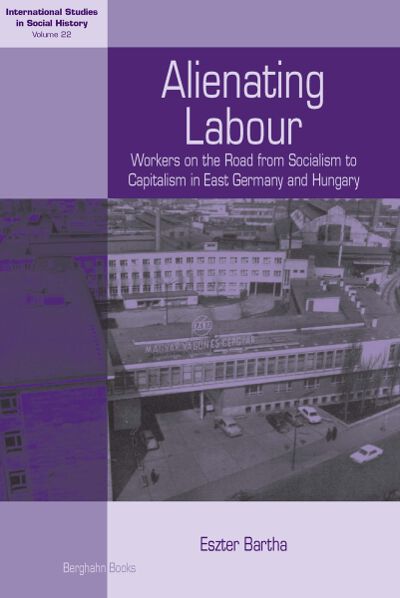 ALIENATING LABOUR
ALIENATING LABOUR
Workers on the Road from Socialism to Capitalism in East Germany and Hungary
Eszter Bartha
The Communist Party dictatorships in Hungary and East Germany sought to win over the “masses” with promises of providing for ever-increasing levels of consumption. This policy—successful at the outset—in the long-term proved to be detrimental for the regimes because it shifted working class political consciousness to the right while it effectively excluded leftist alternatives from the public sphere. This book argues that this policy can provide the key to understanding of the collapse of the regimes. It examines the case studies of two large factories, Carl Zeiss Jena (East Germany) and Rába in Győr (Hungary), and demonstrates how the study of the formation of the relationship between the workers’ state and the industrial working class can offer illuminating insights into the important issue of the legitimacy (and its eventual loss) of Communist regimes.
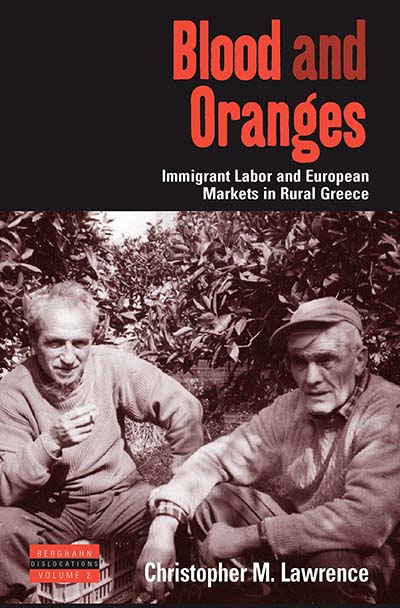 BLOOD AND ORANGES
BLOOD AND ORANGES
Immigrant Labor and European Markets in Rural Greece
Christopher M. Lawrence
A compelling account of the intersection of globalization and neo-racism in a rural Greek community, this book describes the contradictory political and economic development of the Greek countryside since its incorporation into the European Union, where increased prosperity and social liberalization have been accompanied by the creation of a vulnerable and marginalized class of immigrant laborers. The author analyzes the paradoxical resurgence of ethnic nationalism and neo-racism that has grown in the wake of European unification and addresses key issues of racism, neoliberalism and nationalism in contemporary anthropology.
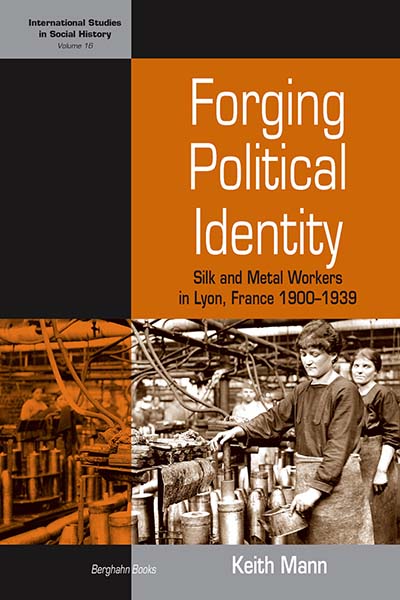 FORGING POLITICAL IDENTITY
FORGING POLITICAL IDENTITY
Silk and Metal Workers in Lyon, France 1900-1939
Keith Mann
Escaping the traditional focus on Paris, the author examines the divergent political identities of two occupational groups in Lyon, metal and silk workers, who, despite having lived and worked in the same city, developed different patterns of political practices and bore distinct political identities. This book also examines in detail the way that gender relations influenced industrial change, skill, and political identity. Combining empirical data collected in French archives with social science theory and methods, this study argues that political identities were shaped by the intersection of the prevailing political climate with the social relations surrounding work in specific industrial settings.
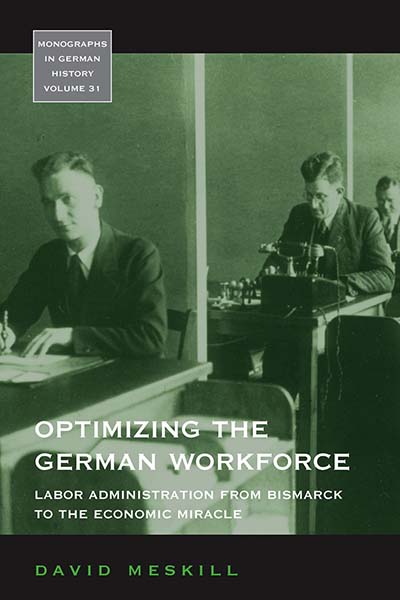 OPTIMIZING THE GERMAN WORKFORCE
OPTIMIZING THE GERMAN WORKFORCE
Labor Administration from Bismarck to the Economic Miracle
David Meskill
During the twentieth century, German government and industry created a highly skilled workforce as part of an ambitious program to control and develop the country’s human resources. Yet, these long-standing efforts to match as many workers as possible to skilled vocations and to establish a system of job training have received little scholarly attention, until now. The author’s account of the broad support for this program challenges the standard historical accounts that focus on disagreements over the German political-economic order and points instead to an important area of consensus. These advances are explained in terms of political policies of corporatist compromise and national security as well as industry’s evolving production strategies. By tracing the development of these policies over the course of a century, the author also suggests important continuities in Germany’s domestic politics, even across such different regimes as Imperial, Weimar, Nazi, and post-1945 West Germany.
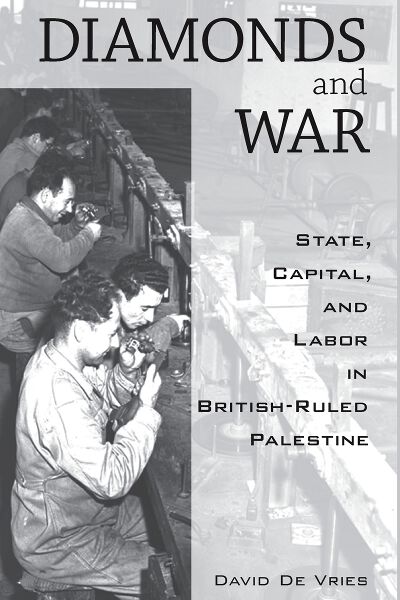 DIAMONDS AND WAR
DIAMONDS AND WAR
State, Capital, and Labor in British-Ruled Palestine
David De Vries
Based on previously unexamined historical documents found in archives in Belgium, England, Israel, the Netherlands, and the United States, this book is the first in English to tell the story of the formation of one of the world’s main strongholds of diamond production and trade in Palestine during the 1930s and 1940s. The history of the diamond-cutting industry, characterized by a long-standing Jewish presence, is discussed as a social history embedded in the international political economy of its times; the genesis of the industry in Palestine is placed on a broad continuum within the geographic and economic dislocations of Dutch, Belgian, and German diamond-cutting centers. In providing a micro-historical and interdisciplinary perspective, the story of the diamond industry in Mandate Palestine proposes a more nuanced picture of the uncritical approach to the strict boundaries of ethnic-based occupational communities. This book unravels the Middle-eastern pattern of state intervention in the empowerment of private capital and recasts this craft culture’s inseparability from international politics during a period of war and transformation of empire.
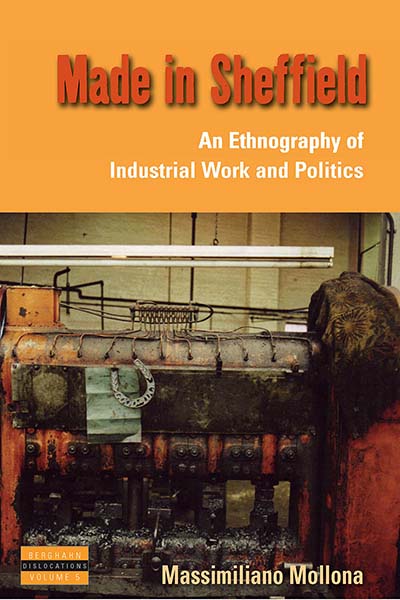 MADE IN SHEFFIELD
MADE IN SHEFFIELD
An Ethnography of Industrial Work and Politics
Massimiliano Mollona
Based on an extended period of research in two local steel factories, this book combines a lively, descriptive account with a wide-ranging critique of post-industrial capitalism. Its central argument is that recent government attempts to engineer Britain’s transition to a post-industrial and classless society have instead created volatile post-industrial spaces marked by informal labor, industrial sweatshops and levels of risk and deprivation that divide citizens along lines of gender, age, and class. The author discovers a link between production and reproduction, and demonstrates the centrality of kinship relations, child and female labor, and intra-household exchanges to the economic process of de-industrialization. Paradoxically, government policies have reinvigorated working-class militancy, spawned local industrial clusters and re-embedded the economy in the spatial and social structure of the neighborhood.
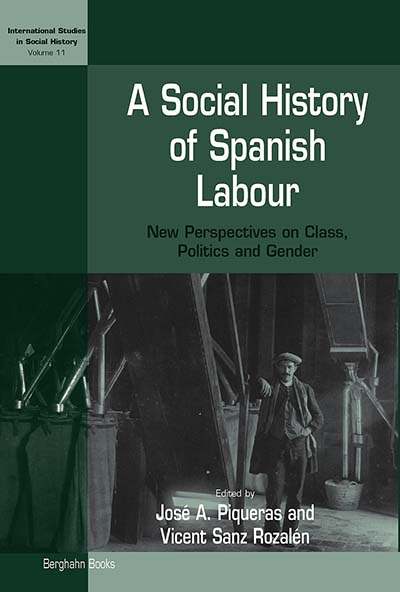 A SOCIAL HISTORY OF SPANISH LABOUR
A SOCIAL HISTORY OF SPANISH LABOUR
New Perspectives on Class, Politics, and Gender
Edited by José A. Piqueras and Vicent Sanz Rozalén
Focusing on organization, resistance and political culture, this collection represents some of the best examples of recent Spanish historiography in the field of modern Spanish labor movements. Topics range from socialism to anarchism, from the formation of the liberal state in the 19th century to the Civil War, and from women in the work place to the fate of the unions under Franco.
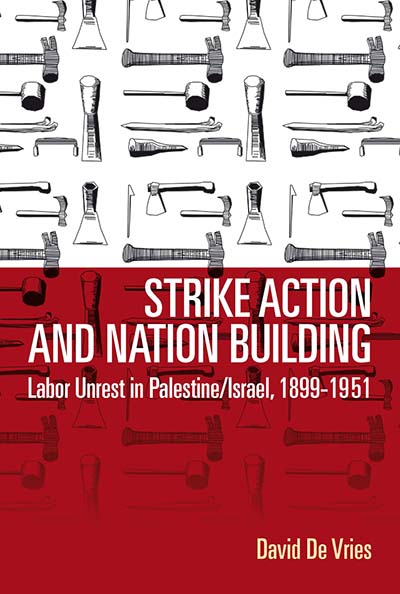
Forthcoming!
STRIKE ACTION AND NATION BUILDING
Labor Unrest in Palestine/Israel, 1899-1951
David De Vries
Strike-action has long been a notable phenomenon in Israeli society, despite forces that have weakened its recurrence, such as the Arab-Jewish conflict, the decline of organized labor, and the increasing precariousness of employment. While the impact of strikes was not always immense, they are deeply rooted in Israel’s past during the Ottoman Empire and Mandate Palestine. Workers persist in using them for material improvement and to gain power in both the private and public sectors, reproducing a vibrant social practice whose codes have withstood the test of time. This book unravels the trajectory of the strikes as a rich source for the social-historical analysis of an otherwise nation-oriented and highly politicized history.
———————————————————————————————————————————–
Berghahn Journals:

Focaal
Journal of Global and Historical Anthropology
Focaal – Journal of Global and Historical Anthropology is a peer-reviewed journal advocating an approach that rests in the simultaneity of ethnography, processual analysis, local insights, and global vision. It is at the heart of debates on the ongoing conjunction of anthropology and history as well as the incorporation of local research settings in the wider spatial networks of coercion, imagination, and exchange that are often glossed as “globalization” or “empire.”
Introducing: FocaalBlog, which aims to accelerate and intensify anthropological conversations beyond what a regular academic journal can do, and to make them more widely, globally, and swiftly available.
